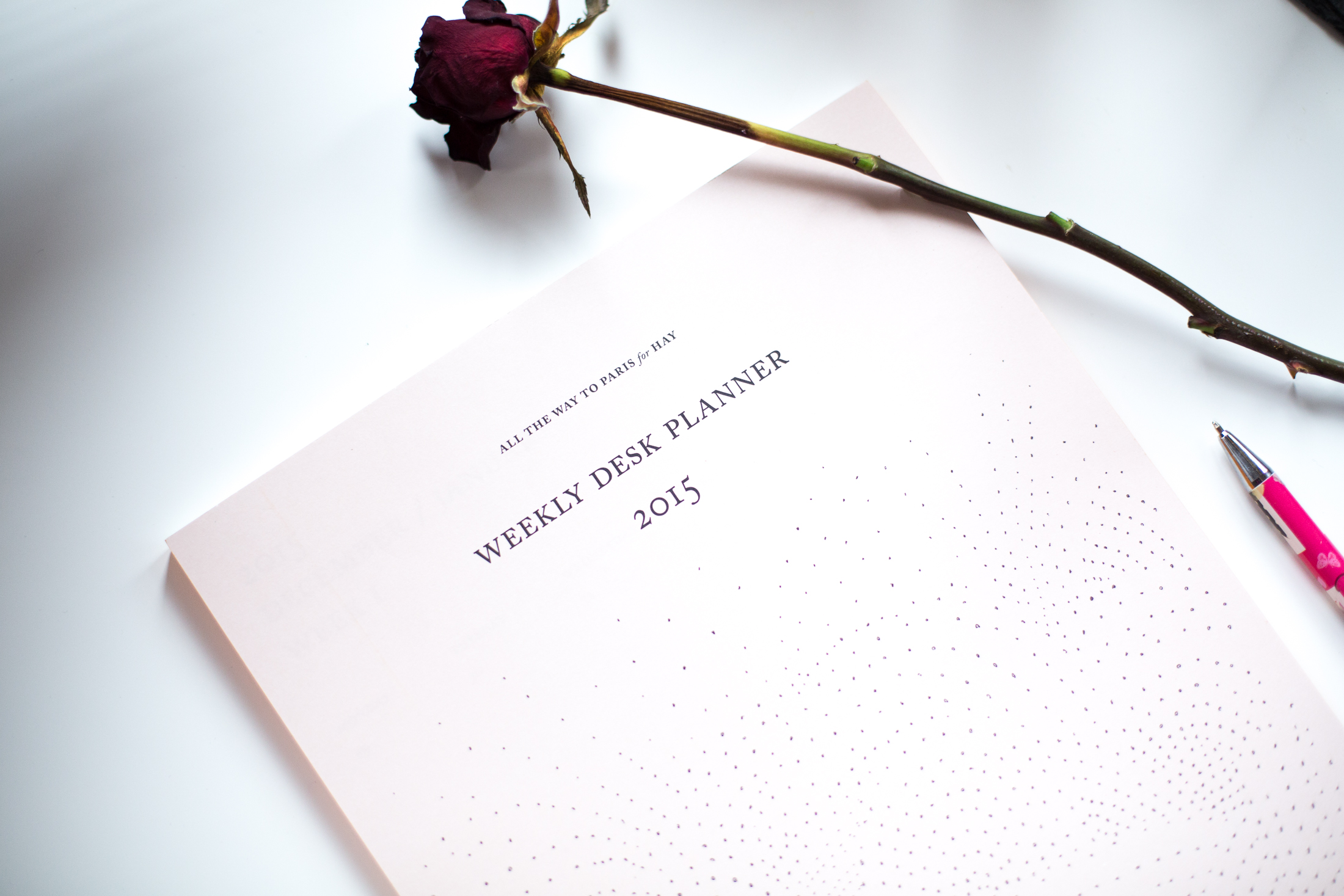. 5 TIPS TO HELP MANAGE YOUR WORKLOAD .
Having a job and earning a living is brilliant, having a job you love and enjoy even more so. But naturally with any job comes responsibility, delivery and sometimes pressure. It’s the nature in the beast and I personally thrive upon these pressure points, it sounds wrong, but actually in that moment of sink or swim I think people truly show their ability, and have an opportunity to shine! But I wouldn’t be sharing tips on how to manage stress or how to get your work life balance in check if I personally wasn’t dealing with these issues, my advice posts are always based on things that I myself have experienced or feel passionate about. And this leads me to today’s topic, stress comes from somewhere and whilst you can do everything possible to help alleviate it (gym, regular breaks, time out etc) and actually the most important point is actually in better managing your work load or work streams so that you don’t need to become stressed in the first place. Of course with any job, work and projects will continue to pile in, but as long as you’ve got a super smart and in control routine in place, then hopefully things become a little easier to juggle!
Today I wanted to share some of my tips for managing your work loads so that overall you are in control, organised and delivering to your best.
As always the tips are not exclusive or even right, they’re just some key things that have really helped me and are skills I think that in any job are key to have mastered. After all you’ll never be CEO if you can’t master the basics!
. GET A DIARY .
First up, and it’s so simple it’s almost not worth writing, get a diary. Whether that’s a pen and paper system, your iPhone or even your work email system calendar. I use all three. If there’s one way to make sure you keep on track, don’t miss a deadline and have good sight of everything you need to be juggling, it’s in a diary. It’s critical you don’t miss deadlines, and having a calendar or diary to help you manage these is the most basic rule in the book.
If I’m working on a big project or a pitch and have a whole ton of work streams going on, I even use my calendar as a reminder to myself for what I want completed by when, or to remind myself to check in with others. I like to also keep my social invites in my calendar too, not least because a formal invite means I’m more likely to commit and ensure I attend, but also because it shines a little light onto my week of hell (standard challenge of too much to do and never enough time).
. DAILY TO DO LISTS .
My second tip is again, not that mind blowing but something that I also think is rule 101 of managing work loads and getting organised. A to do list. It’s something I encourage all my team to have, a personal list of tasks and deliverables, even though we might have overall project status sheets, having a list specific to what you individually need to deliver will help ensure you don’t miss anything but most importantly will allow you to tackle one thing at a time and also prioritise work streams based on delivery date / time required to do the work / other small jobs that also need completing etc.
I personally have a very detailed to do list with all my bigger projects and deliverables on, and then often on a daily basis while I have my coffee create a smaller to do list for the specific day ahead. Micro managing your work streams like this does help everything seem a little more doable, we all know that pages and pages of tasks is enough to send anyone into a nervous breakdown.
. PRIORITISE .
As I mentioned prioritising is then key. Once you have a clear view of work streams and your time to do the work, you can then start prioritising what jobs need doing when. In doing this not only are you helping clear your own head and give yourself a clear plan of action, it’ll then also allow you to manager other people’s expectations which is always advised. You can give a firm answer on when you will deliver the required work, and they can feel rest assured that you have it all in hand, it avoids chasing, persistent emails or any confusion which is always a good thing.
When you prioritise there are a number of things you should take into consideration, not least the size of the job and the time it takes to do it, but also your availability based on your other work (what can or can’t be moved to accommodate this new project), the urgency or importance of each task, for example if it’s a big pitch or client meeting that you need to deliver work for, then smaller less important tasks will need to be de-prioritised. It’s a very simple process, but doing this either by yourself or with your team on a daily basis will just ensure things don’t pile up or get left until the last minute!
. DELEGATE .
Delegate. No one can do everything, you work in a team and the point of this is to have a support network and a group of skilled people who can all help deliver on workloads. You don’t have to be the boss to delegate, you can delegate up as well as delegating down, and of course you can seek support and delegate sideways too (to other disciplines or areas of your business). Delegation is something I took a while to embrace, I’m a control freak, and I know I can create work that tick my quality expectations, but ultimately by holding onto everything you not only put yourself under additional pressure and stress, you also stop other people from learning new things too. Delegation is actually a really important part of business and managing work loads, and splitting work between a team is the most efficient way of getting things done.
. MANAGE EXPECTATIONS .
It’s often hard in the work place to push back, say no, or challenge requests, but actually it’s a really important way of managing your time, your workloads and also other peoples expectations. It’s in no ones benefit for you to say yes to everything, yet deliver late or deliver work that’s not to the best of your ability as it was rushed or left until the last minute. By taking total control of your workload you should have a clear idea of what you can and can’t do, and equally what and when you’ll deliver on things. Once you’ve got a clear routine in place it means you can manage clients, your boss or your team on what and when you’ll be able to deliver the work. It’s in everyone’s benefit to have an honest conversation about what is and isn’t feasible, and by being open about what you can deliver, you may find that less is required than you actually thought or that someone else is able to support on something thats less of a priority. Catching up with your team regularly is one way to help this and keeping people updated on the status of projects is an easy way of ensuring peoples expectations are managed and that no one is left disappointed.
So there you have it, a few easy ways to help manage your work loads and overall make things feel a little more manageable. As always they’re just things that help me, so they’re not ‘rules’ or 100% accurate. But one things for certain, it’s always worth remembering that no matter how hard, stressful or busy work gets, you’ll always come out the other side. It’s only work after all.
Do you have any tips for managing work loads? I hope you found this feature helpful?








Loved these tips. I couldn’t live without my diary, I’d be so lost! Staying organised and prioritising is so important for being productive x
http://www.annablush.com
I think I’ll apply this to my uni-life – because I’ve got a lot of work to be doing in my masters and I need to stay on top of it all! Thanks for sharing these tips!
I have two notebooks and a filofax so I know when everything is due, plus to prioritise and make sure tasks within are fully completed – always keeps me focused!
Lauren x
Britton Loves | Lifestyle Food Fashion Beauty – http://www.brittonloves.blogspot.co.uk
Great tips! I love making lists so for me this works. I just love the feeling of crossing something out :)
Ashley
Sunday Brunch
This was such a useful post – thank you! x
NINEGRANDSTUDENT: A Student Lifestyle Blog